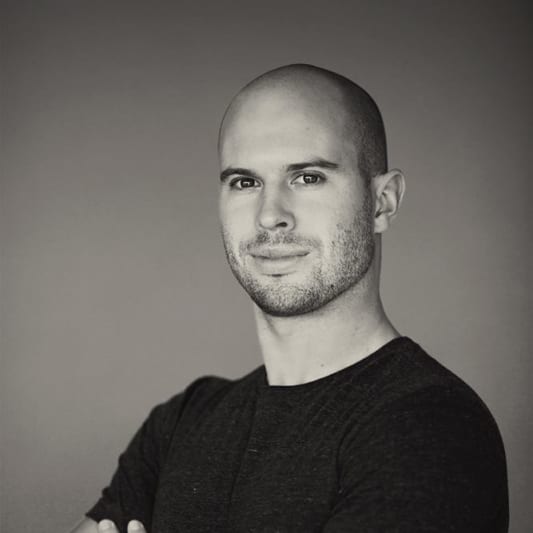
My name is Sean and I'm a professional mix engineer living in Toronto, Canada. I attended the Pacific Audio Visual institute where I graduated from the Audio Engineering and Music Production program in 2011.
I specialize in mixing music that was recorded by real musicians playing real instruments. No EDM/Dubstep/Electronic to be found on my resume! My musical background is mostly based in jazz and blues, but I also have a great deal of experience mixing rock, pop, latin, singer-songwriter and country music.
I also work frequently in the film and television scene as a post-production sound mixer, dialogue editor and sound designer.
Contact me through the green button above and let's get to work.
Interview with Sean Story Sound
Q: What are you working on at the moment?
A: I'm currently working on a series of music videos that were recorded at a studio in Vancouver.
Q: Analog or digital and why?
A: Both of course, but more and more digital. As digital clones of classic analog sounds get better and better, it's inevitable that they will take over because of sheer convenience and ease of use. It may be that 1% of people will be able to tell the difference between a certain analog compressor and its digital counterpart, but the other 99% won't, and wouldn't care if you pointed it out.
Q: What's the biggest misconception about what you do?
A: That I am a DJ.
Q: What advice do you have for a customer looking to hire a provider like you?
A: Find reference tracks that RELATE TO YOUR SONG. I always ask clients to provide reference tracks for me to listen to so that I have a solid idea of what they are looking for. Often I get reference tracks that are in no way comparable to the songs we're working on. It's very difficult for an engineer to mix a song based on the feelings you feel while listening to an unrelated song. So if you've recorded a vocal pop song, please don't send your engineer a classical orchestra recording and ask them to capture the "feeling" or "mood" in the mix. Send another vocal pop song as a reference and tell them what you like about the sound. This will make for a happy engineer and a much faster turn-around time.
Q: How would you describe your style?
A: Minimalist. I like to keep the essence of the recording session as much as possible. I try to bring out the story of how and why a song was recorded rather than trying to make it into something completely different. To me it's not about how much I change the song during the mix, it's about how the song is engaging to the listener while staying true to the artists vision.
Q: Which artist would you like to work with and why?
A: One of my favourite artists since I was a teenager is Jamie Cullum. His jazz background fused with incredible vocal chops and excellent songwriting makes him extremely engaging to the listener. I grew up listening to jazz standards as a child so to hear so many of my old favourites recorded with a new flair is both nostalgic and exciting.
Q: Can you share one music production tip?
A: The single most important thing when mixing music is your listening environment. If you have any money at all to spend on studio upgrades, look first at your sound treatment and ask yourself if it is adequate. No matter how good your monitors, preamps and compressors none of it matters if what you're hearing is distorted by reflections and frequency buildup.
Q: What's your strongest skill?
A: My ears! Being able to properly discern between voices while listening to a song is the most important skill an engineer can have. After so many years of critical listening I am able to easily pick out the faintest of sounds in a mix and decide whether they should be augmented or diminished, and I pride myself on my ability to hear instruments fighting for the same frequency bands and adjust EQ accordingly.
Q: What do you bring to a song?
A: I try to think of it as "What can I bring out of this song?" My philosophy regarding mixing is to allow the listener to hear what is really happening, including all the subtle nuances that musicians bring to the recording which sometimes get lost when too many effects are applied to a track. I'm not a fan of heavily modifying the original recording, rather I try to augment the best parts of each instrument and bring out the personality of the band. Allowing the chemistry between musicians to come through in the mix is paramount to a fantastic listening experience.
Q: Tell us about your studio setup.
A: My mixing room is professionally treated and perfectly calibrated for the best possible listening environment. I mix using Pro Tools as my DAW. Most of my mixing happens in the box with a variety of aftermarket plugins, but I also use outboard rack-mounted gear such as my UA 1176 limiting amplifier.
Q: Describe the most common type of work you do for your clients.
A: The most common type of work that I do is full album mixes for jazz, pop, and blues artists. I often work on albums recorded at Canterbury Music Company in Toronto.
- Mixing EngineerAverage price - $200 per song
- Mastering EngineerAverage price - $50 per song
- Vocal TuningAverage price - $50 per track
- Sound DesignAverage price - $250 per minute
- Post MixingAverage price - $150 per minute
- Post EditingAverage price - $150 per track
- Dialogue EditingAverage price - $150 per minute
Turn-around time for music mixing is (on average) 3 days per song. Film mixing and sound design varies per project.
3 revisions per song.



